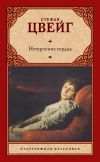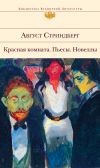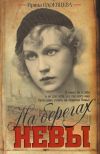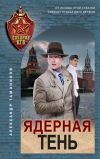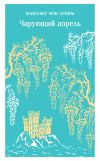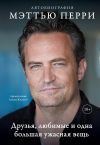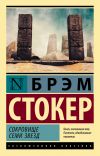Текст книги "The Murder of Roger Ackroyd / Убийство Роджера Экройда"
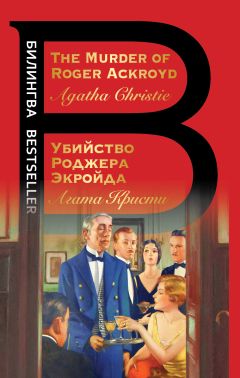
Автор книги: Агата Кристи
Жанр: Классические детективы, Детективы
Возрастные ограничения: +16
сообщить о неприемлемом содержимом
Текущая страница: 8 (всего у книги 29 страниц) [доступный отрывок для чтения: 10 страниц]
flora paused a few minutes before replying.
‘I do not like it,’ she said at last, ‘but I will do what you say.’
She sat down again at the table.
‘And now, messieurs et mesdames,’ said Poirot rapidly, ‘I will continue with what I was about to say. Understand this, I mean to arrive at the truth. The truth, however ugly in itself, is always curious and beautiful to the seeker after it. I am much aged, my powers may not be what they were.’ here he clearly expected a contradiction. ‘In all probability this is the last case I shall ever investigate. But Hercule Poirot does not end with a failure. Messieurs et mesdames, I tell you, I mean to know. And I shall know – in spite of you all.’
He brought out the last words provocatively, hurling them in our face as it were. I think we all flinched back a little, excepting Geoffrey Raymond, who remained goodhumoured and imperturbable as usual.
‘How do you mean – in spite of us all?’ he asked, with slightly raised eyebrows.
‘But – just that, monsieur. every one of you in this room is concealing something from me.’ he raised his hand as a faint murmur of protest arose. ‘yes, yes, I know what I am saying. It may be something unimportant – trivial – which is supposed to have no bearing on the case, but there it is. Each one of you has something to hide. come now, am I right?’
His glance, challenging and accusing, swept round the table. And every pair of eyes dropped before his. yes, mine as well.
‘I am answered,’ said Poirot, with a curious laugh. He got up from his seat. ‘I appeal to you all. Tell me the truth – the whole truth.’ There was a silence. ‘Will no one speak?’
He gave the same short laugh again.
‘C’est dommage,’ he said, and went out.
Chapter 13
The Goose Quill
That evening, at Poirot’s request, I went over to his house after dinner. Caroline saw me depart with visible reluctance. I think she would have liked to have accompanied me.
Poirot greeted me hospitably. he had placed a bottle of Irish whiskey (which I detest) on a small table, with a soda water siphon and a glass. he himself was engaged in brewing hot chocolate. It was a favourite beverage of his, I discovered later.
He inquired politely after my sister, whom he declared to be a most interesting woman.
‘I’m afraid you’ve been giving her a swelled head,’ I said drily. ‘What about Sunday afternoon?’
He laughed and twinkled.
‘I always like to employ the expert,’ he remarked obscurely, but he refused to explain the remark.
‘You got all the local gossip anyway,’ I remarked. ‘True, and untrue.’
‘And a great deal of valuable information,’ he added quietly.
‘Such as-’
He shook his head.
‘Why not have told me the truth?’ he countered. ‘In a place like this, all ralph Paton’s doings were bound to be known. If your sister had not happened to pass through the wood that day somebody else would have done so.’
‘I suppose they would,’ I said grumpily. ‘What about this interest of yours in my patients?’
Again he twinkled.
‘Only one of them, doctor. Only one of them.’
‘The last?’ I hazarded.
‘I find Miss Russell a study of the most interesting,’ he said evasively.
‘Do you agree with my sister and Mrs Ackroyd that there is something fishy about her?’ I asked.
‘Eh? What do you say – fishy?’
I explained to the best of my ability.
‘And they say that, do they?’
‘Didn’t my sister convey as much to you yesterday afternoon?’
‘C’est possible.’
‘For no reason whatever,’ I declared.
‘Les femmes,’ generalized Poirot. ‘They are marvellous! They invent haphazard – and by miracle they are right. Not that it is that, really. Women observe subconsciously a thousand little details, without knowing that they are doing so. Their subconscious mind adds these little things together – and they call the result intuition. Me, I am very skilled in psychology. I know these things.’
He swelled his chest out importantly, looking so ridiculous that I found it difficult not to burst out laughing. Then he took a small sip of his chocolate, and carefully wiped his moustache.
‘I wish you’d tell me,’ I burst out, ‘what you really think of it all?’
He put down his cup. ‘You wish that?’
‘I do.’
‘You have seen what I have seen. Should not our ideas be the same?’
‘I’m afraid you’re laughing at me,’ I said stiffly. ‘Of course, I’ve no experience of matters of this kind.’
Poirot smiled at me indulgently.
‘You are like the little child who wants to know the way the engine works. you wish to see the affair, not as the family doctor sees it, but with the eye of a detective who knows and cares for no one – to whom they are all strangers and all equally liable to suspicion.’
‘You put it very well,’ I said.
‘So I give you, then, a little lecture. The first thing is to get a clear history of what happened that evening – always bearing in mind that the person who speaks may be lying.’
I raised my eyebrows.
‘Rather a suspicious attitude.’
‘But necessary – I assure you, necessary. Now first – dr Sheppard leaves the house at ten minutes to nine. how do I know that?’
‘Because I told you so.’
‘But you might not be speaking the truth – or the watch you went by might be wrong. But Parker also says that you left the house at ten minutes to nine. So we accept that statement and pass on. At nine o’clock you run into a man – and here we come to what we will call the romance of the Mysterious Stranger – just outside the Park gates. how do I know that that is so?’
‘I told you so,’ I began again, but Poirot interrupted me with a gesture of impatience.
‘Ah! but it is that you are a little stupid tonight, my friend. You know that it is so – but how am I to know? Eh bien, I am able to tell you that the Mysterious Stranger was not a hallucination on your part, because the maid of a Miss Gannett met him a few minutes before you did, and of her too he inquired the way to Fernly Park. We accept his presence, therefore, and we can be fairly sure of two things about him – that he was a stranger to the neighbourhood, and that whatever his object in going to Fernly, there was no great secrecy about it, since he twice asked the way there.’
‘Yes,’ I said, ‘I see that.’
‘Now I have made it my business to find out more about this man. he had a drink at the Three Boars, I learn, and the barmaid there says that he spoke with an American accent and mentioned having just come over from the States. did it strike you that he had an American accent?’
‘Yes, I think he had,’ I said, after a minute or two, during which I cast my mind back; ‘but a very slight one.’
‘Précisément. There is also this, which, you will remember, I picked up in the summer-house.’
He held out to me the little quill. I looked at it curiously. Then a memory of something I had read stirred in me.
Poirot, who had been watching my face, nodded.
‘Yes, heroin, “snow”. drug-takers carry it like this, and sniff it up the nose.’
‘Diamorphine hydrochloride,’ I murmured mechanically.
‘This method of taking the drug is very common on the other side. Another proof, if we wanted one, that the man came from Canada or the States.’
‘What first attracted your attention to that summerhouse?’ I asked curiously.
‘My friend the inspector took it for granted that anyone using that path did so as a short cut to the house, but as soon as I saw the summer-house, I realized that the same path would be taken by anyone using the summerhouse as a rendezvous. Now it seems fairly certain that the stranger came neither to the front nor to the back door. Then did someone from the house go out and meet him? If so, what could be a more convenient place than that little summer-house? I searched it with the hope that I might find some clue inside. I found two, the scrap of cambric and the quill.’
‘And the scrap of cambric?’ I asked curiously. ‘What about that?’
Poirot raised his eyebrows.
‘You do not use your little grey cells,’ he remarked drily. ‘The scrap of starched cambric should be obvious.’
‘Not very obvious to me.’ I changed the subject. ‘Anyway,’ I said, ‘this man went to the summer-house to meet somebody. Who was that somebody?’
‘Exactly the question,’ said Poirot. ‘You will remember that Mrs Ackroyd and her daughter came over from Canada to live here?’
‘Is that what you meant today when you accused them of hiding the truth?’
‘Perhaps. Now another point. What did you think of the parlourmaid’s story?’
‘What story?’
‘The story of her dismissal. Does it take half an hour to dismiss a servant? Was the story of those important papers a likely one? And remember, though she says she was in her bedroom from nine-thirty until ten o’clock, there is no one to confirm her statement.’
‘You bewilder me,’ I said.
‘To me it grows clearer. But tell me now your own ideas and theories.’
I drew a piece of paper from my pocket.
‘I just scribbled down a few suggestions,’ I said apologetically.
‘But excellent – you have method. Let us hear them.’
I read out in a somewhat embarrassed voice.
‘To begin with, one must look at the thing logically-’
‘Just what my poor hastings used to say,’ interrupted Poirot, ‘but alas! he never did so.’
‘Point No. 1-Mr Ackroyd was heard talking to someone at half-past nine.
‘Point No. 2-At some time during the evening Ralph Paton must have come in through the window, as evidenced by the prints of his shoes.
‘Point No. 3-Mr Ackroyd was nervous that evening, and would only have admitted someone he knew.
‘Point No. 4-The person with Mr Ackroyd at ninethirty was asking for money. We know Ralph Paton was in a scrape.
‘These four points go to show that the person with Mr Ackroyd at nine-thirty was Ralph Paton. But we know that Mr Ackroyd was alive at a quarter to ten, therefore it was not Ralph who killed him. Ralph left the window open. Afterwards the murderer came in that way.’
‘And who was the murderer?’ inquired Poirot.
‘The American stranger. He may have been in league with Parker, and possibly in Parker we have the man who blackmailed Mrs ferrars. If so, Parker may have heard enough to realize the game was up, have told his accomplice so, and the latter did the crime with the dagger which Parker gave him.’
‘It is a theory that,’ admitted Poirot. ‘Decidedly you have cells of a kind. But it leaves a good deal unaccounted for.’
‘Such as-’
‘The telephone call, the pushed-out chair-’
‘Do you really think that latter important?’ I interrupted.
‘Perhaps not,’ admitted my friend. ‘It may have been pulled out by accident, and Raymond or Blunt may have shoved it into place unconsciously under the stress of emotion. Then there is the missing forty pounds.’
‘Given by Ackroyd to Ralph,’ I suggested. ‘He may have reconsidered his first refusal.’
‘That still leaves one thing unexplained.’
‘What?’
‘Why was Blunt so certain in his own mind that it was Raymond with Mr Ackroyd at nine-thirty?’
‘He explained that,’ I said.
‘You think so? I will not press the point. Tell me, instead, what were Ralph Paton’s reasons for disappearing?’
‘That’s rather more difficult,’ I said slowly. ‘I shall have to speak as a medical man. Ralph’s nerves must have gone phut! If he suddenly found out that his uncle had been murdered within a few minutes of his leaving him – after, perhaps, a rather stormy interview – well, he might get the wind up and clear right out. Men have been known to do that – act guiltily when they’re perfectly innocent.’
‘Yes, that is true,’ said Poirot. ‘But we must not lose sight of one thing.’
‘I know what you’re going to say,’ I remarked: ‘motive. Ralph Paton inherits a great fortune by his uncle’s death.’
‘That is one motive,’ agreed Poirot.
‘One?’
‘Mais oui. Do you realize that there are three separate motives staring us in the face. Somebody certainly stole the blue envelope and its contents. That is one motive. Blackmail! ralph Paton may have been the man who blackmailed Mrs ferrars. remember, as far as hammond knew, ralph Paton had not applied to his uncle for help of late. That looks as though he were being supplied with money elsewhere. Then there is the fact that he was in some– how do you say – scrape? – which he feared might get to his uncle’s ears. And finally there is the one you have just mentioned.’
‘Dear me,’ I said, rather taken aback. ‘The case does seem black against him.’
‘Does it?’ said Poirot. ‘That is where we disagree, you and I. Three motives – it is almost too much. I am inclined to believe that, after all, Ralph Paton is innocent.’
Chapter 14
Mrs Ackroyd
After the evening talk I have just chronicled, the affair seemed to me to enter on a different phase. The whole thing can be divided into two parts, each clear and distinct from the other. Part I ranges from Ackroyd’s death on the friday evening to the following Monday night. It is the straightforward narrative of what occurred, as presented to Hercule Poirot. I was at Poirot’s elbow the whole time. I saw what he saw. I tried my best to read his mind. As I know now, I failed in this latter task. Though Poirot showed me all his discoveries – as, for instance, the gold wedding-ring – he held back the vital and yet logical impressions that he formed. As I came to know later, this secrecy was characteristic of him. he would throw out hints and suggestions, but beyond that he would not go.
As I say, up till the Monday evening, my narrative might have been that of Poirot himself. I played Watson to his Sherlock. But after Monday our ways diverged. Poirot was busy on his own account. I got to hear of what he was doing, because in King’s Abbot you get to hear of everything, but he did not take me into his confidence beforehand. And I, too, had my own preoccupations.
On looking back, the thing that strikes me most is the piecemeal character of this period. everyone had a hand in the elucidation of the mystery. It was rather like a jig-saw puzzle to which everyone contributed their own little piece of knowledge or discovery. But their task ended there. To Poirot alone belongs the renown of fitting those pieces into their correct place.
Some of the incidents seemed at the time irrelevant and unmeaning. There was, for instance, the question of the black boots. But that comes later… To take things strictly in chronological order, I must begin with the summons from Mrs Ackroyd.
She sent for me early on Tuesday morning, and since the summons sounded an urgent one, I hastened there, expecting to find her in extremis.
The lady was in bed. So much did she concede to the etiquette of the situation. She gave me her bony hand, and indicated a chair drawn up to the bedside.
‘Well, Mrs Ackroyd,’ I said, ‘and what’s the matter with you?’
I spoke with that kind of spurious geniality which seems to be expected of general practitioners.
‘I’m prostrated,’ said Mrs Ackroyd in a faint voice. ‘Absolutely prostrated. It’s the shock of poor roger’s death. They say these things often aren’t felt at the time, you know. It’s the reaction afterwards.’
It is a pity that a doctor is precluded by his profession from being able sometimes to say what he really thinks.
I would have given anything to be able to answer ‘Bunkum!’
Instead, I suggested a tonic. Mrs Ackroyd accepted the tonic. One move in the game seemed now to be concluded. Not for a moment did I imagine that I had been sent for because of the shock occasioned by Ackroyd’s death. But Mrs Ackroyd is totally incapable of pursuing a straightforward course on any subject. She always approaches her object by tortuous means. I wondered very much why it was she had sent for me.
‘And then that scene – yesterday,’ continued my patient.
She paused as though expecting me to take up a cue.
‘What scene?’
‘Doctor, how can you? Have you forgotten? That dreadful little frenchman – or Belgian – or whatever he is. Bullying us all like he did. It has quite upset me. coming on the top of Roger’s death.’
‘I’m very sorry, Mrs Ackroyd,’ I said.
‘I don’t know what he meant – shouting at us like he did. I should hope I know my duty too well to dream of concealing anything. I have given the police every assistance in my power.’
Mrs Ackroyd paused, and I said,
‘Quite so.’ I was beginning to have a glimmering of what all the trouble was about.
‘No one can say that I have failed in my duty,’ continued Mrs Ackroyd. ‘I am sure Inspector raglan is perfectly satisfied. Why should this little upstart of a foreigner make a fuss? A most ridiculous-looking creature he is too – just like a comic frenchman in a revue. I can’t think why flora insisted on bringing him into the case. She never said a word to me about it. Just went off and did it on her own. flora is too independent. I am a woman of the world and her mother. She should have come to me for advice first.’
I listened to all this in silence.
‘What does he think? That’s what I want to know. does he actually imagine I’m hiding something? he – he – positively accused me yesterday.’
I shrugged my shoulders.
‘It is surely of no consequence, Mrs Ackroyd,’ I said. ‘Since you are not concealing anything, any remarks he may have made do not apply to you.’
Mrs Ackroyd went off at a tangent, after her usual fashion.
‘Servants are so tiresome,’ she said. ‘They gossip, and talk amongst themselves. And then it gets round – and all the time there’s probably nothing in it at all.’
‘have the servants been talking?’ I asked. ‘What about?’
Mrs Ackroyd cast a very shrewd glance at me. It quite threw me off my balance.
‘I was sure you’d know, doctor, if anyone did. You were with M. Poirot all the time, weren’t you?’
‘I was.’
‘Then of course you know. It was that girl, Ursula Bourne, wasn’t it? Naturally – she’s leaving. She would want to make all the trouble she could. Spiteful, that’s what they are. They’re all alike. Now, you being there, doctor, you must know exactly what she did say? I’m most anxious that no wrong impression should get about. After all, you don’t repeat every little detail to the police, do you? There are family matters sometimes – nothing to do with the question of the murder. But if the girl was spiteful, she may have made out all sorts of things.’
I was shrewd enough to see that a very real anxiety lay behind these outpourings. Poirot had been justified in his premises. of the six people round the table yesterday, Mrs Ackroyd at least had had something to hide. It was for me to discover what that something might be.
‘If I were you, Mrs Ackroyd,’ I said brusquely, ‘I should make a clean breast of things.’
She gave a little scream.
‘Oh! Doctor, how can you be so abrupt. It sounds as though – as though – And I can explain everything so simply.’
‘Then why not do so?’ I suggested.
Mrs Ackroyd took out a frilled handkerchief, and became tearful.
‘I thought, doctor, that you might put it to M. Poirot– explain it, you know – because it’s so difficult for a foreigner to see our point of view. And you don’t know– nobody could know – what I’ve had to contend with. A martyrdom – a long martyrdom. That’s what my life has been. I don’t like to speak ill of the dead – but there it is. Not the smallest bill but it had all to be gone over – just as though roger had had a few miserly hundreds a year instead of being (as Mr Hammond told me yesterday) one of the wealthiest men in these parts.’
Mrs Ackroyd paused to dab her eyes with the frilled handkerchief.
‘Yes,’ I said encouragingly. ‘You were talking about bills?’
‘Those dreadful bills. And some I didn’t like to show roger at all. They were things a man wouldn’t understand. he would have said the things weren’t necessary. And of course they mounted up, you know, and they kept coming in-’
She looked at me appealingly, as though asking me to condole with her on this striking peculiarity.
‘It’s a habit they have,’ I agreed.
And the tone altered – became quite abusive.
‘I assure you, doctor, I was becoming a nervous wreck. I couldn’t sleep at nights. And a dreadful fluttering round the heart. And then I got a letter from a Scotch gentleman – as a matter of fact there were two letters – both Scotch gentlemen. Mr Bruce MacPherson was one, and the other was Colin Macdonald. Quite a coincidence.’
‘Hardly that,’ I said drily. ‘They are usually Scotch gentlemen, but I suspect a Semitic strain in their ancestry.’
‘Ten pounds to ten thousand on note of hand alone,’ murmured Mrs Ackroyd reminiscently. ‘I wrote to one of them, but it seemed there were difficulties.’
She paused.
I gathered that we were just coming to delicate ground. I have never known anyone more difficult to bring to the point.
‘You see,’ murmured Mrs Ackroyd, ‘it’s all a question of expectations, isn’t it? Testamentary expectations. And though, of course, I expected that roger would provide for me, I didn’t know. I thought that if only I could glance over a copy of his will – not in any sense of vulgar prying – but just so that I could make my own arrangements.’
She glanced sideways at me. The position was now very delicate indeed. fortunately words, ingeniously used, will serve to mask the ugliness of naked facts.
‘I could only tell this to you, dear doctor Sheppard,’ said Mrs Ackroyd rapidly. ‘I can trust you not to misjudge me, and to represent the matter in the right light to M. Poirot. It was on friday afternoon-’
She came to a stop and swallowed uncertainly.
‘yes,’ I repeated encouragingly. ‘on friday afternoon. Well?’
‘Everyone was out, or so I thought. And I went into Roger’s study – I had some real reason for going there – I mean, there was nothing underhand about it. And as I saw all the papers heaped on the desk, it just came to me, like a flash: “I wonder if Roger keeps his will in one of the drawers of the desk.” I’m so impulsive, always was, from a child. I do things on the spur of the moment. He’d left his keys – very careless of him – in the lock of the top drawer.’
‘I see,’ I said helpfully. ‘So you searched the desk. did you find the will?’
Mrs Ackroyd gave a little scream, and I realized that I had not been sufficiently diplomatic.
‘How dreadful it sounds. But it wasn’t at all like that really.’
‘Of course it wasn’t,’ I said hastily. ‘You must forgive my unfortunate way of putting things.’
‘Of course, men are so peculiar. In dear roger’s place, I should have not objected to revealing the provisions of my will. But men are so secretive. One is forced to adopt little subterfuges in self-defence.’
‘And the result of the little subterfuge?’ I asked.
‘That’s just what I’m telling you. As I got to the bottom drawer, Bourne came in. Most awkward. of course I shut the drawer and stood up, and I called her attention to a few specks of dust on the surface. But I didn’t like the way she looked – quite respectful in manner, but a very nasty light in her eyes. Almost contemptuous, if you know what I mean. I never have liked that girl very much. She’s a good servant, and she says Ma’am, and doesn’t object to wearing caps and aprons (which I declare to you a lot of them do nowadays), and she can say “Not at home” without scruples if she has to answer the door instead of Parker, and she doesn’t have those peculiar gurgling noises inside which so many parlourmaids seem to have when they wait at table – Let me see, where was I?’
‘You were saying, that in spite of several valuable qualities, you never liked Bourne.’
‘No more I do. She’s – odd. There’s something different about her from the others. Too well educated, that’s my opinion. you can’t tell who are ladies and who aren’t nowadays.’
‘And what happened next?’ I asked.
‘Nothing. At last, Roger came in. And I thought he was out for a walk. And he said: “What’s all this?” and I said, “Nothing. I just came in to fetch Punch.” And I took Punch and went out with it. Bourne stayed behind. I heard her asking roger if she could speak to him for a minute. I went straight up to my room, to lie down. I was very upset.’ There was a pause. ‘You will explain to M. Poirot, won’t you? You can see for yourself what a trivial matter the whole thing was. But, of course, when he was so stern about concealing things, I thought of this at once. Bourne may have made some extraordinary story out of it, but you can explain, can’t you?’
‘That is all?’ I said. ‘You have told me everything?’
‘Ye-es,’ said Mrs Ackroyd. ‘Oh! Yes,’ she added firmly.
But I had noted the momentary hesitation, and I knew that there was still something she was keeping back. It was nothing less than a flash of sheer genius that prompted me to ask the question I did.
‘Mrs Ackroyd,’ I said, ‘was it you who left the silver table open?’
I had my answer in the blush of guilt that even rouge and powder could not conceal.
‘How did you know?’ she whispered.
‘It was you, then?’
‘Yes – I-you see – there were one or two pieces of old silver – very interesting. I had been reading up the subject and there was an illustration of quite a small piece which had fetched an immense sum at Christy’s. It looked to be just the same as the one in the silver table. I thought I would take it up to London with me when I went – and – and have it valued. Then if it really was a valuable piece, just think what a charming surprise it would have been for Roger.’
I refrained from comments, accepting Mrs Ackroyd’s story on its merits. I even forbore to ask her why it was necessary to abstract what she wanted in such a surreptitious manner.
‘Why did you leave the lid open?’ I asked. ‘Did you forget?’
‘I was startled,’ said Mrs Ackroyd. ‘I heard footsteps coming along the terrace outside. I hastened out of the room and just got up the stairs before Parker opened the front door to you.’
‘That must have been Miss Russell,’ I said thoughtfully.
Mrs Ackroyd had revealed to me one fact that was extremely interesting. Whether her designs upon Ackroyd’s silver had been strictly honourable I neither knew nor cared. What did interest me was the fact that Miss Russell must have entered the drawing-room by the window, and that I had not been wrong when I judged her to be out of breath with running. Where had she been? I thought of the summerhouse and the scrap of cambric.
‘I wonder if Miss Russell has had her handkerchiefs starched!’ I exclaimed on the spur of the moment.
Mrs Ackroyd’s start recalled me to myself, and I rose.
‘You think you can explain to M. Poirot?’ she asked anxiously.
‘Oh, certainly. Absolutely.’
I got away at last, after being forced to listen to more justifications of her conduct.
The parlourmaid was in the hall, and it was she who helped me on with my overcoat. I observed her more closely than I had done heretofore. It was clear that she had been crying.
‘How is it,’ I asked, ‘that you told us that Mr Ackroyd sent for you on friday to his study? I hear now that it was you who asked to speak to him.’
For a minute the girl’s eyes dropped before mine. Then she spoke.
‘I meant to leave in any case,’ she said uncertainly.
I said no more. She opened the front door for me. Just as I was passing out, she said suddenly in a low voice:
‘Excuse me, sir, is there any news of captain Paton?’
I shook my head, looking at her inquiringly.
‘He ought to come back,’ she said. ‘Indeed – indeed he ought to come back.’ She was looking at me with appealing eyes. ‘Does no one know where he is?’ she asked.
‘Do you?’ I said sharply.
She shook her head.
‘No, indeed. I know nothing. But anyone who was a friend to him would tell him this: he ought to come back.’
I lingered, thinking that perhaps the girl would say more. Her next question surprised me.
‘When do they think the murder was done? Just before ten o’clock?’
‘That is the idea,’ I said. ‘Between a quarter to ten and the hour.’
‘Not earlier? Not before a quarter to ten?’
I looked at her attentively. She was so clearly eager for a reply in the affirmative.
‘That’s out of the question,’ I said. ‘Miss Ackroyd saw her uncle alive at a quarter to ten.’
She turned away, and her whole figure seemed to droop.
‘A handsome girl,’ I said to myself as I drove off. ‘An exceedingly handsome girl.’
Caroline was at home. She had had a visit from Poirot and was very pleased and important about it.
‘I am helping him with the case,’ she explained.
I felt rather uneasy. Сaroline is bad enough as it is. What will she be like with her detective instincts encouraged?
‘Are you going round the neighbourhood looking for Ralph Paton’s mysterious girl?’ I inquired.
‘I might do that on my own account,’ said Caroline. ‘No, this is a special thing M. Poirot wants me to find out for him.’
‘What is it?’ I asked.
‘He wants to know whether ralph Paton’s boots were black or brown,’ said Caroline with tremendous solemnity.
I stared at her. I see now that I was unbelievably stupid about these boots. I failed altogether to grasp the point.
‘They were brown shoes,’ I said. ‘I saw them.’
‘Not shoes, James, boots. M. Poirot wants to know whether a pair of boots ralph had with him at the hotel were brown or black. A lot hangs on it.’
Call me dense if you like. I didn’t see.
‘And how are you going to find out?’ I asked.
Caroline said there would be no difficulty about that. Our Annie’s dearest friend was Miss Gannett’s maid, Clara. And Clara was walking out with the boots at the Three Boars. The whole thing was simplicity itself, and by the aid of Miss Gannett, who co-operated loyally, at once giving Clara leave of absence, the matter was rushed through at express speed.
It was when we were sitting down to lunch that Caroline remarked, with would-be unconcern:
‘About those boots of ralph Paton’s.’
‘Well,’ I said, ‘what about them?’
‘M. Poirot thought they were probably brown. he was wrong. They’re black.’
And Caroline nodded her head several times. She evidently felt that she had scored a point over Poirot.
I did not answer. I was puzzling over what the colour of a pair of ralph Paton’s boots had to do with the case.
Правообладателям!
Данное произведение размещено по согласованию с ООО "ЛитРес" (20% исходного текста). Если размещение книги нарушает чьи-либо права, то сообщите об этом.Читателям!
Оплатили, но не знаете что делать дальше?














